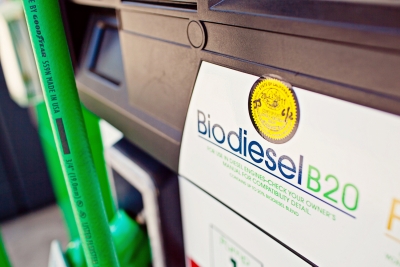
Qantas’s biofuel partner Solazyme has seen sales increases of 35 per cent at participating test sites in the US, where B20 algae-derived diesel fuel was sold alongside mineral diesel.
And a post-sale survey has shown that drivers prefer the algae-based Soladiesel over conventional fuels.
Biofuels Digest reports that Propel Fuels and Solazyme experienced sales growth of 35 per cent at Propel stations, offering SoladieselBD in a B20 blend during a 30-day retail pilot program, compared to non-test sites.
The pilot was conducted at Propel’s Clean Fuel Points in Redwood City, San Jose, Berkeley, and Oakland.
In addition, a follow-on consumer preference study with Propel’s customers found 92 per cent of participants noted that they would be more likely to purchase algae-derived fuel for its environmental benefits, 70 per cent indicated that they would purchase the fuel more frequently if it were derived from algae, and nearly 40 per cent of customers indicated they would pay a premium for algae-derived fuel.
The pilot program marked the first commercial availability of algal derived fuels — and in the pilot program, SoladieselBD B20 was retailed at a parity price with conventional diesel fuel.
Propel is poised to accelerate the building out of its network of stations that offer drivers the cleanest, most sustainable, locally produced fuels on the market today. Propel currently operates stations throughout California and Washington State with more than 200 stations planned for new and existing markets over the next two years.
Solazyme’s cost performance and capacity-building
Solazyme’s microalgae strains producing oil for the fuels and chemicals markets have achieved key performance metrics that they believe would allow them to manufacture oils today at a cost below $1,000 per metric ton ($0.91 per litre) if produced in a built-for-purpose commercial plant.
In 2012, Solazyme increased its owned capacity to approximately 8,000 metric tons through the expansion of a Peoria facility as well as the completion of its Phase I and II Solazyme Roquette Nutritionals facilities — but expects to have 550,000 metric tons of production capacity by 2015, which would support over $1 billion in product revenue.
At the same time, Solazyme has entered into non-binding offtake agreements with Dow Chemical and Qantas. Dow Chemical will purchase up to 76 million litres of Solazyme’s oils in 2013, rising to up to 227 million litres by 2015. Qantas will purchase a minimum of 200 to 400 million litres of Solazyme’s jet fuel per year.
An independent greenhouse gas measurement firm has determined that Soladiesel provides an 85-93% greenhouse gas emissions reduction when compared to conventional petroleum-based diesel. In addition, testing by the National Renewable Energy Laboratory (NREL) indicates that in a 20 per cent blend, SoladieselBD significantly outperforms ultra-low sulfur diesel in total hydrocarbons (THC), carbon monoxide (CO) and particulate matter tailpipe emissions. This includes an approximate 30 per cent reduction in particulates, a 20 per cent reduction in CO and an approximate 10 per cent reduction in THC.





